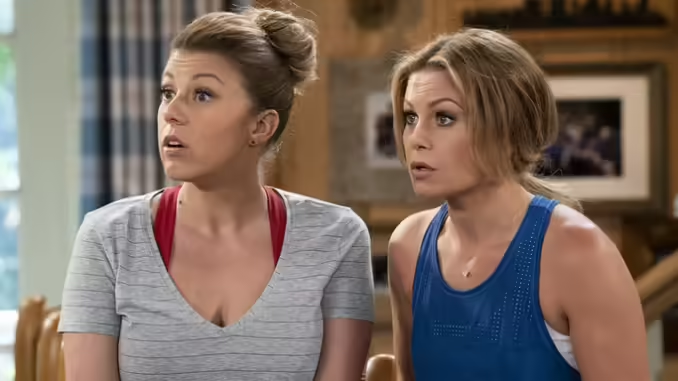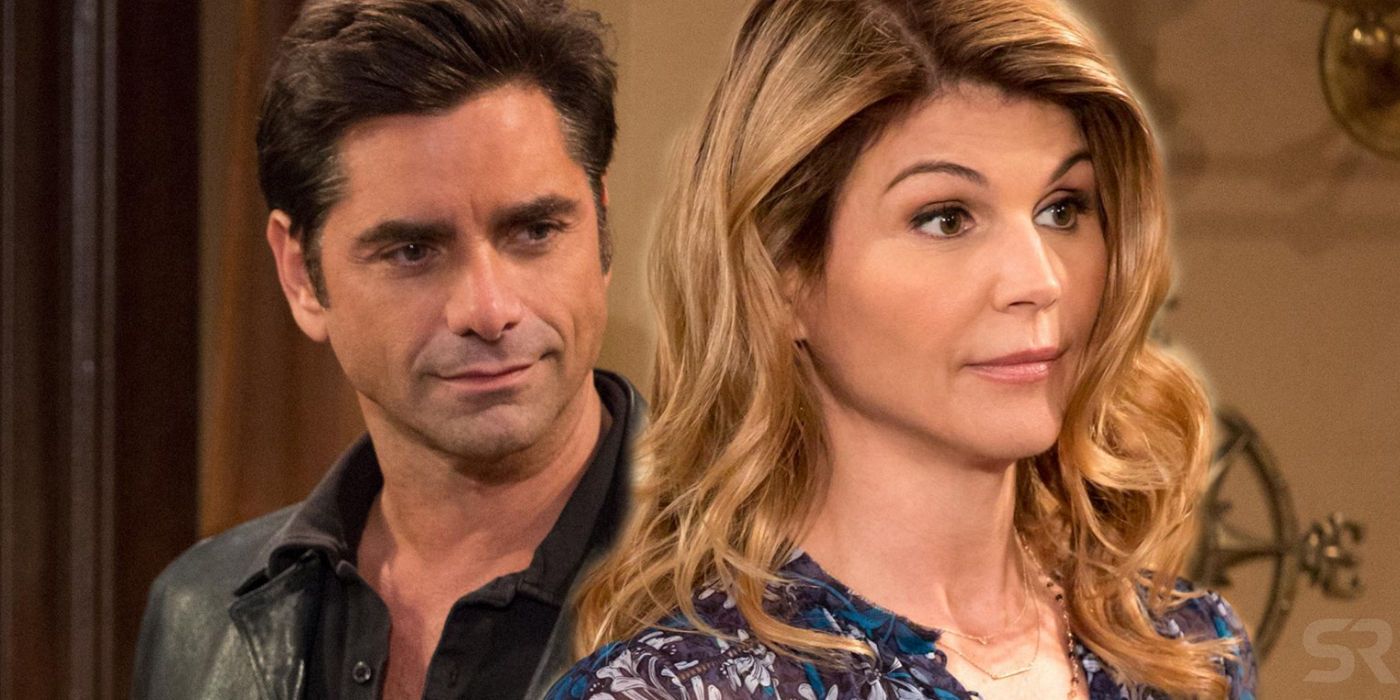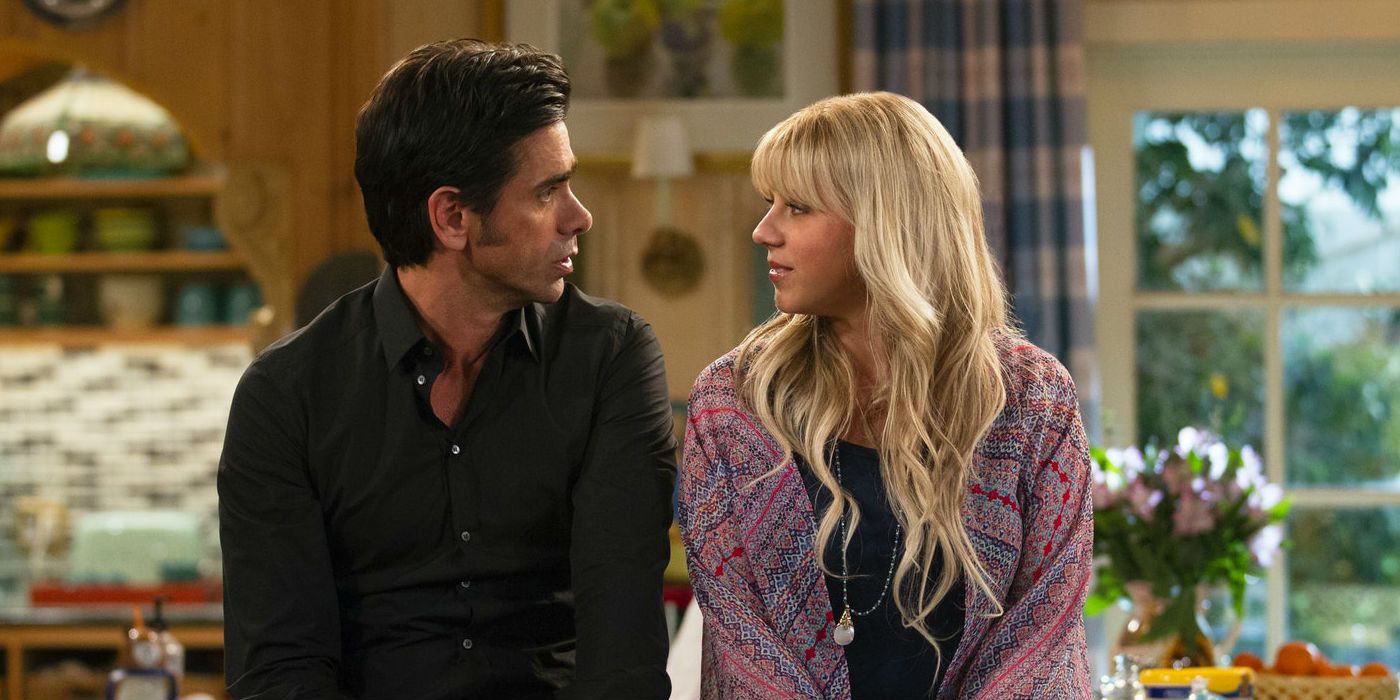
Stephanie Tanner’s biggest personal twist was improvised by Jodie Sweetin in Fuller House. The middle Tanner daughter returned home temporarily to help her newly widowed sister, DJ Tanner (Candace Cameron-Bure). Eventually, Stephanie decided to stay, leaving her life as a global party disc jockey and starting her own family with Jimmy Gibbler (Adam Hagenbuch).

Since Fuller House banked on nostalgia, it pretty much just re-used Full House‘s premise. Like Danny Tanner (Bob Saget), DJ was widowed abruptly, leaving her to raise three kids on her own. Stephanie and Kimmy Gibbler (Andrea Barber) moved in with her, mirroring Jesse Katsopolis (John Stamos) and Joey Gladstone’s (Dave Coulier) arc in the original series. The Netflix spin-off went above and beyond to stick to these parallels — even retconning Stephanie to be musically inclined to evoke comparisons to Jesse (in the original, she was a dancer). All that being said, at least Fuller House updated her characterization to reflect modern times as evidenced by her pregnancy journey. Due to some health issues, Stephanie was believed to be unable to carry her own baby, leading to Kimmy becoming her surrogate.

This was arguably one of the best plotlines in the offshoot. However, another storyline that the series could’ve fully explored was the revelation that Stephanie was bisexual — a twist that was apparently ad-libbed. In Fuller House season 4, Stephanie made a comment about once having a girlfriend that lasted longer than a veterinary clinic that was only open for three weeks. According to Sweetin’s co-star and the series’ co-producer, Cameron-Bure: “Jodie switched up the line in that take and we weren’t expecting it, so it was everyone’s true reaction and we broke. So they kept it in.” In the actual scene, DJ was clearly floored with her sister’s nonchalant confession about being bisexual in Fuller House. Meanwhile, their more outgoing friend, Gia (Marla Sokoloff) just burst into laughter. While both reactions were genuine since no one expected Sweetin to veer away from the script, it’s interesting that they still make sense given Gia and DJ’s respective personalities.

Sweetin has never commented on the matter, and Cameron-Bure’s revelation, although still interesting, just poses more questions. For starters, it’s curious what the original line was on the script before it was changed at the last minute. Secondly, it would also be nice to learn more about Sweetin’s thought process for the adlib. Admittedly, however, many didn’t like this throwaway line. Initially, it was celebrated as it meant that Fuller House was making a push for better representation through the family sitcom — but, when it became clear that there’s nothing more to it than just a punch line, some pointed out that being bisexual shouldn’t be used for a cheap and quick laugh. In hindsight, the show could’ve further explored this side of Stephanie in subsequent episodes. Granted that her pregnancy arc was also compelling, Netflix could’ve easily incorporated this side of her into the offshoot without significantly altering the trajectory of her narrative.
Suffice to say, it was a big missed opportunity for Fuller House not to explore this side of Stephanie. Seeing the middle Tanner child openly talk about her sexuality would’ve been great for the show’s on-screen representation. The spin-off relied too heavily on nostalgia that it forgot what actually made Full House great — actively tackling sensitive and timely issues in a way that’s still appropriate for all ages. So although the Netflix sequel lasted for five seasons, it didn’t have the same pop culture impact as its parent show did.
